Shaping the future through science
Unisa staff win big at WISA
Congratulations to the top Unisans who walked off with the honours at the Women in Science Awards (WiSA) ceremony at the Sandton Hilton Hotel on 11 August 2016. Dr Naomi Nkealah, Senior Lecturer in English Studies, won the Award for Distinguished Young Woman Researcher, while Prof Shivani Bhardwaj Mishra was the second runner up in the Distinguished Women in Science award for Natural and Physical Science.
Nozipho Gumbi received a TATA Africa Scholarship for Women in Science, Engineering and Technology in the doctoral student category.
Promise Thapelo Malematja from Unisa’s Material and Process Synthesis (MaPS) research unit received the TATA Africa Scholarship for Women in Science, Engineering & Technology in the master’s student category.
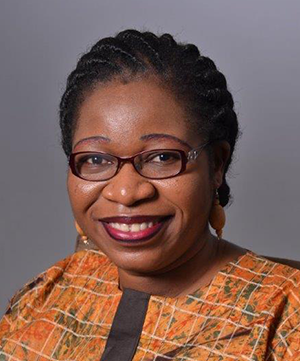
Dr Naomi Nkealah
Nkealah has published 10 articles in accredited journals on feminism and African women’s writing, and is collaborating on a book project with internationally acclaimed feminist Professor Obioma Nnaemeka at Indiana University in the United States. She received her NRF Y rating in January 2015 while lecturing at the University of Limpopo, joining Unisa in April 2015.
Gumbi is currently a PhD Nanotechnology student at Unisa and did the university and country proud after reaching the finals of FameLab international in the UK earlier this year.
Through these awards, the DST recognises and rewards the achievements of South African women in science and research. The awards are aimed at profiling women scientists and researchers as role models for younger scientists and researchers.
Given the low number of women scientists and researchers, the awards also encourage younger women to remain in science-related careers.
The theme for the 2016 WISA is Women’s empowerment and its link to sustainable development, which is the 2016 priority theme for the United Nations Commission on the Status of Women (UNCSW).
Delivering the keynote address, former Deputy President Phumzile Mlambo-Ngcuka congratulated the ‘exceptional’ South Africans, particularly those making a social impact in the empowerment of women, saying the South African Women in Science Awards created a platform for mentorship which was desperately needed in South Africa.
“I addition to this, mentorship should create an opportunity for sponsorship so that when we mentor, we mentor someone with the intention to sponsor them so that we shatter the glass ceiling, because perpetual mentoring can be frustrating. There has to be a trajectory that mentoring leads us to,” said Mlambo-Ngcuka.
She said the women who were being honored had chosen to be part of a dynamic and exciting field of science and technology.
Talking about access to the broadband in society, Mlambo-Ngquka called for the expansion of technology to rural and poor communities.

Promise Thapelo Malematja from Unisa’s Material and Process Synthesis (MaPS) research unit received the TATA Africa Scholarship for Women in Science, Engineering & Technology in the master’s student category. |
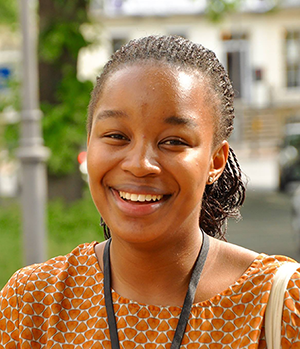
Nozipho Gumbi |
She urged scientists to collaborate with local and international partners to use science to end poverty, hunger, improve health, education, ensure gender equality, water, sanitation, energy, economic growth, and protect peace, among others, in line with the Sustainable Development Goals of the United Nations.
“I congratulate you and salute you for the wonderful things you are doing for the country.”
Opening the Awards ceremony, the Minister of Science and Technology, Naledi Pandor, said the awards were not only a special event, but allowed young women to dream of a life in science, as far too many girls were led to assume that their dreams were irrelevant.
The theme for this year is “Women empowerment and its link to sustainable development”.
“The Women in Science Awards is always a special event. It is a celebration of the achievements of women in science and a reminder that we will not realise the full scientific potential of our country until all our young scientists are able to enjoy access to the best facilities and education,” said the Minister.
Congratulating the winners and the runners up, Pandor said South African women had achieved a level of gender equality that had only been accomplished in other countries after many decades of democracy.
Yet, she said, the evidence of continuing gender inequality in some of our key institutions of governance clearly indicated that a great deal more had to be done in South Africa to ensure that women feel practically safe and respected as equal citizens of our country.
*Compiled by Sharon Farrell from the Department of Science and Technology
Publish date: 2016-08-12 00:00:00.0


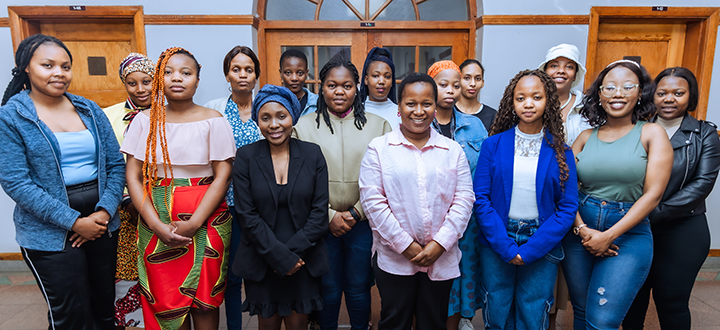 Second cohort of the Bosadi Artisan Creative Media Business Start-up Programme launched
Second cohort of the Bosadi Artisan Creative Media Business Start-up Programme launched
 Percy Qoboza remains a luminary voice for truth and justice in the digital era
Percy Qoboza remains a luminary voice for truth and justice in the digital era
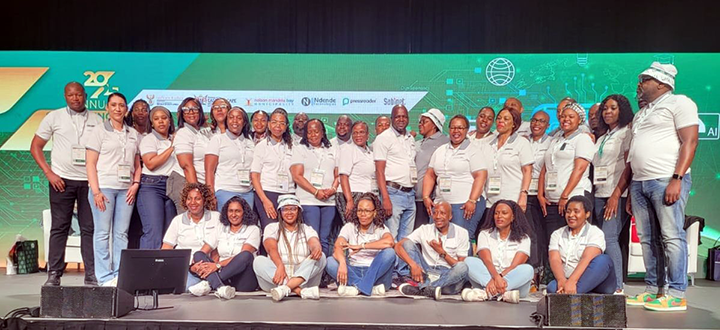 Unisa celebrates excellence at LIASA Conference
Unisa celebrates excellence at LIASA Conference
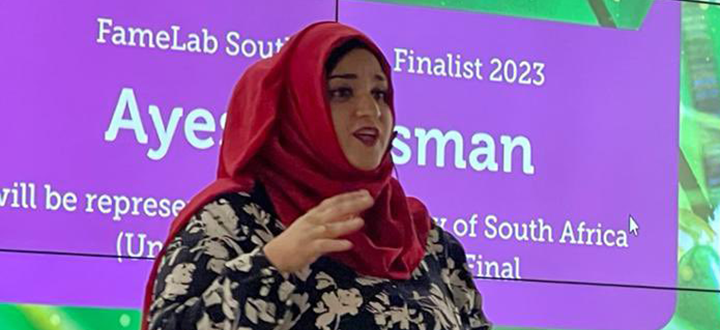 From personal struggles to national reach
From personal struggles to national reach
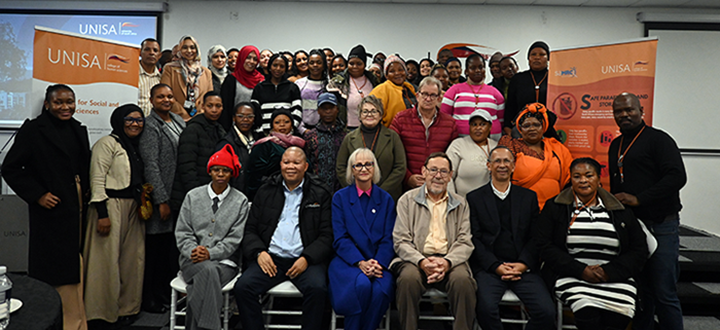 Why South Africans need safer energy alternatives
Why South Africans need safer energy alternatives